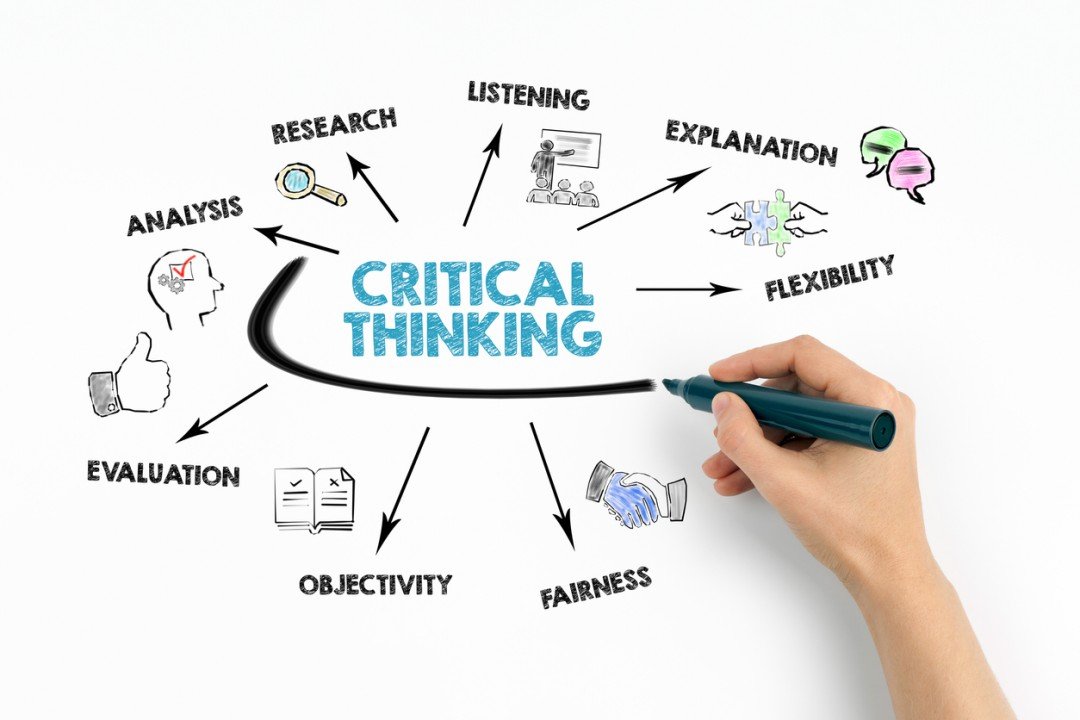
The Best Country in the World?
Think about it. If the U.S. vanished overnight:
• The global economy collapses. The U.S. dollar is the backbone of international trade. Remove it, and financial markets implode.
• Wars break out. No U.S. military means power vacuums everywhere—Russia moves on Europe, China takes Taiwan, the Middle East spirals.
• Technology stalls. Silicon Valley, NASA, MIT, all gone. No more cutting-edge research, no more AI breakthroughs, no more space travel.
• Culture takes a nosedive. No Hollywood, no pop music, no sports empires. The world loses its biggest cultural engine overnight.

Language as NOT a Barrier
True communication extends beyond words—it thrives in body language, energy, and presence. Charisma transcends language. A genuine smile, open posture, and confident demeanor can make more impact than perfectly spoken words. This is why great leaders, entertainers, and public figures captivate audiences worldwide, even when speaking in a language unfamiliar to their listeners.

The Geometry of Attraction
Attraction isn’t random—it follows a deep, instinctual logic. Men are drawn to curves, women seek health. This pattern, etched into our biology, explains why men fixate on circles—breasts, hips, the arch of a spine—while women scan for strength, balance, and presence. In this Fowklaw piece, we break down the evolutionary psychology behind physical attraction and why these preferences have stood the test of time.

Are Our Parents Our Gods?
One day you see their flaws. You hear the cracks. Maybe they believe something hateful. Maybe they push you to chase money or live for a sky daddy. You realize they built your world with blocks that came from their own confusion. You wonder if their “truth” was guesswork. But it shaped you. It guides your next move. Even if you revolt, you still revolve around them. They remain your first gods, laying the tracks for your journey.

‘I’ am ‘Me’
Someday I will grow and challenge them. Yet in this moment, I exist in their shadow, shaped by every word they say.

Confidence is Key
Confidence is the silent force that separates those who dream from those who achieve. It’s the difference between hesitating and taking action, between settling and striving for more. Whether in relationships, business, or fitness, confidence determines the way you carry yourself, the opportunities you attract, and the resilience you build.
At its core, confidence stems from self-belief—not just in your current abilities, but in your capacity to grow, adapt, and improve. This belief fosters resilience, allowing you to take risks, embrace failure as a learning experience, and continuously push yourself forward.

Family, Capitalism and the Age of Consent
Society pushes the lie of independence at 18. A handshake, a diploma, a pile of debt, and a lease—this is the grand welcome into adulthood. The truth? At 18, you are barely formed. Your brain is still developing, your judgment still sharpening, your finances nonexistent. Yet capitalism demands fresh labor, so off you go, scrambling to survive in a system designed to profit from your struggle.
But what if adulthood didn’t start until 25? What if families rejected the script, keeping their children close, building wealth together, creating a family compound—not out of necessity, but out of strength?

Categories Creates Division
From the moment we are old enough to process the idea of ‘us’ versus ‘them,’ humans have shown a remarkable capacity to divide ourselves into categories. Although labels like race, sexuality, or socioeconomic status can help us navigate complex realities, they too often become rigid boundaries that fuel hostility. Throughout history, we have repeatedly sought an enemy—whether it was another tribe, another nation, or simply a group that looks or behaves differently. In a hyperconnected world, these ancient instincts find new life online, where social media amplifies division for the sake of engagement. This article explores how categorizing people into neat boxes—from ‘short kings’ to wealthy elites—reinforces our tribal tendencies and offers pathways to break free from the cycle. By re-examining our biases and embracing nuance, we can begin to see each other as more than the sum of our labels and work toward genuine unity.

Are We Wrong About China?
My friend once pictured China as a land of towering skylines and hidden watchers. She arrived in Shanghai. She found streets alive at midnight, offering a sense of safety and freedom. Public transport cost pennies, linking every corner of the city. E-commerce thrived with dizzying speed and convenience—fresh produce and ramen delivered to her dorm within hours. She experienced facial-recognition vending machines, neon avenues, and a palpable drive toward the future. Yet she also sensed a quiet oversight, an ever-present system logging purchases, journeys, and moments. She embraced the paradox. Shanghai revealed a more complex truth than any headline promised.

From Rome to America
The rule of law has been the foundation of stable civilizations, ensuring that governance is not dictated by personal decree but by established legal frameworks. This principle, first codified in the Twelve Tables of the Roman Republic (450 BCE), was reinforced by the Cortes of Aragon (1031–1578), expanded through England’s Magna Carta (1215) and Bill of Rights (1689), and ultimately enshrined in the U.S. Constitution (1787). Each of these legal systems sought to balance power, prevent tyranny, and uphold justice, yet history demonstrates a pattern: republics that abandon these principles inevitably collapse into dictatorship or decay.

Trump’s The Americas Vision
The strategic, economic, and ideological foundations of a proposed continental union, drawing on historical precedents, contemporary challenges, and a reimagined vision of what American expansionism might look like in a modern context. As debates continue and the future unfolds, the idea of Trump’s North America remains a bold hypothesis—one that may inspire new policies, spark innovative collaborations, and ultimately shape the destiny of an entire region.

Why Teach Critical Thinking?
Education is at a crossroads. The old model—where students sat in silence, absorbing information like empty vessels—no longer serves a world overflowing with knowledge, misinformation, and competing narratives. Today, memorization is obsolete. The ability to think critically is what separates the informed from the misled, the independent from the manipulated.

Pinpoint the Moments
“We are not merely the sum of our experiences, but of our reflections upon them. To examine one’s life is to reclaim it.” — Socrates

The Fear of a Dying Wolf
President Donald Trump’s recent statements and actions regarding Ukraine and Russia have drawn widespread criticism from international leaders and experts, who argue that his stance undermines democratic values and emboldens authoritarian aggression.

The Five Generations
“Hard times create strong men.
Strong men create good times.
Good times create weak men.
Weak men create hard times.”
— G. Michael Hopf

Kendrick Lamar’s Defeat of Drake
Kendrick’s groundbreaking diss track, Not Like Us, not only topped the charts but also shifted cultural paradigms, signaling the end of an era dominated by commercial success. Coupled with a historic five Grammy sweep and a Super Bowl halftime performance that broke new ground for solo rappers, his work fuses conceptual artistry with social commentary. In doing so, Kendrick Lamar is not just shaping the future of rap; he is redefining what it means to leave a lasting legacy in a genre built on constant evolution.

A Company becomes a Walking Corpse, after the Founder Dies
“Here's to the crazy ones. The misfits. The rebels. The troublemakers. The round pegs in the square holes. The ones who see things differently. They're not fond of rules. And they have no respect for the status quo. You can quote them, disagree with them, glorify or vilify them. About the only thing you can't do is ignore them. Because they change things. They push the human race forward. And while some may see them as the crazy ones, we see genius. Because the people who are crazy enough to think they can change the world, are the ones who do.” ― Steve Jobs
The Temptation of the Grand Conspiracy
Conspiracies exist because the world is chaotic, unfair, and frustrating. When faced with uncertainty, people crave explanations—coherent, digestible reasons why things happen the way they do. The idea of a shadow government—an unseen hand guiding global events—persists because it provides a simple answer to complex problems.
Most conspiracy theories, however, are absolute shit. They rely on bad evidence, paranoia, and the false assumption that governments are hyper-competent. History proves otherwise. Bureaucracy is slow, politicians are inept, and institutions leak like a sieve. If governments can barely run themselves, how could they orchestrate a flawless, centuries-spanning global conspiracy?
And yet—there’s a kernel of truth in the fear. While there’s no secret society of hooded figures ruling the world, the undeniable reality is that power does not sit neatly within government buildings. Real decisions are made behind closed doors, not through democratic debate but by unelected corporate executives, intelligence agencies, and financial institutions shaping policy in their favor. This isn’t a conspiracy—it’s just how power works.
Governments, no matter their structure, create gaps for hidden influence. Democracies are slow and corruptible. Monarchies concentrate power in self-serving elites. Communism promises equality but breeds authoritarian oligarchies. Capitalism turns wealth into political leverage. Anarchy invites warlords to take control. No matter the system, greed, ambition, and self-interest shape global affairs more than any shadowy cabal ever could.
So, is there a real shadow government? Not in the way conspiracy theorists imagine. But a hidden power structure? Absolutely. It isn’t made of reptilian overlords—it’s the natural result of wealth, influence, and human nature consolidating in predictable ways. If you’re looking for the real conspiracy, don’t search for a secret society. Just follow the money.

Teaching
Teaching is the ultimate stress test for knowledge. It drags understanding out of the shadows, strips away illusions, and forces clarity. The moment you try to explain something, you see its structure—or its cracks. You stumble over details you assumed you knew, struggle to simplify what once felt obvious, and realize that half of what you believed was muscle memory, not mastery.

The War in Your Skull
The war within your mind is a constant struggle between the Thinking Brain and the Feeling Brain—logic versus emotion, strategy versus impulse, long-term vision versus immediate gratification. The Thinking Brain calculates, plans, and ensures stability, while the Feeling Brain fuels passion, creativity, and connection. When one dominates, life becomes either sterile or chaotic. True mastery comes not from silencing one side but from learning when to let each lead. Through history, science, and personal experience, we see that the greatest minds and most fulfilled lives find a way to balance these forces. The Thinking Brain maps the road, but the Feeling Brain chooses the direction. The key to a rich and meaningful life is not picking one over the other—it is integrating both, allowing logic and emotion to work in harmony, shaping a life of both wisdom and wonder.